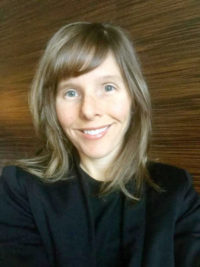A seminar on the issue of climate adaptation was held at NMU last Friday afternoon on the first floor of Jamrich Hall.
George Weiblen, interim scientific director of the Bell Museum of Natural History and plant and microbial biology professor at the University of Minnesota spoke about his findings related to climate adaptation and its effect on the world. Weiblen has been traveling the world to gather information about tropical forests. He earned his doctorate at Harvard and has published over 60 research articles in his field.
Weiblen began his lecture talking about tropical rainforests and their involvement with the global carbon cycle and climate regulation. These tropical rainforests mitigate floods and droughts and are a source of both timber and non-timber forest products.
Additionally these forests hold cultural and aesthetic values and have spiritual significance to many of the people living in or around them.
Weiblen noted the effects that people have on these forested systems.
“We [as humans] are now a force of nature influential enough to affect the very systems that have enabled us to be so successful,” he said.
Forty to 50 percent of Earth’s surface has been transformed into urban and agricultural systems by humans. Additionally humans currently use 54 percent of the world’s fresh water and this is expected to increase to 70 percent by the year 2050.
“For decades our consumption habits have been making an impact on the planet. Taking responsibility for those choices and making more sustainable decisions is important for both the planet’s future and humanity’s future,” Jessica Thompson, associate professor of communication and performance studies, said.
Weiblen traveled to New Guinea, which has been a focal point for studies on tropical rainforests for 25 years. New Guinea is one of the least developed countries in the world and this makes it one of the last great tropical wilderness areas that has not been converted for industrial use. The wilderness is five times the size of the state Illinois.
Weiblen visits New Guinea multiple times a year to do research on the current declining growth rates of woody stems in the tropical forests. 98 percent of the land in New Guinea is in the hands of the indigenous people and Weiblen along with his research team works with the population to measure, map, tag and identify woody stems that are larger than (or equal to) one centimeter in the Wanang Forest. It took three years for Weiblen and his team to complete their first census.
Weiblen used the language of the indigenous people as a cultural aspect to name certain species of plants that they gave nomenclature. He and his team were able to make pharmaceutical discoveries with the discovered plants.
Weiblen underlined the issues that came with doing research in such a foreign area. He spoke about tensions he had with different indigenous people. Additionally, Weiblen talked about the muddy soils of New Guinea and how it was impossible to drive there due to landslides along with heavy rainfall that caused trees to uproot and wash away. Weiblen said the uneven ground made it difficult for the team to measure their initial plot of the conservation.
Despite a few setbacks in research, the forest of Wanang was recognized at the Paris Climate Change Talk in 2015, where an indigenous tribal leader was awarded the Equator Prize for educating visiting researchers on indigenous environmental challenges and brought home $10,000, which he later distributed among the clans of New Guinea that were involved in the research.
“In a landscape that can be pretty negative and discouraging in terms of environment, I’m encouraged that there are examples of good things happening and this is one of them,” Weiblen said in closing at the seminar.
Students walked out of the presentation with the ability to recognize and understand the rigor and difficulty of researching how the anatomy of the Earth is changing.
“Dr. Weiblen’s presentation provided a unique perspective on the challenges of conducting climate change research. From the rigorous methodology to the relationship building, many aspects of his global change research were fascinating,” Thompson said. “The most inspiring part is that he’s been working on this project for more than 25 years and has dedicated his career to understanding forests in a systematic and responsible way. I was inspired by his
methodology.”
The Northern Climate Network partnered with NMU’s Sigma Xi Society chapter to bring Weiblen to campus. They will also host the Marquette’s People Climate March on April 29 at the Marquette Commons, which is a sister march for the Climate March happening in Washington, D.C.

























